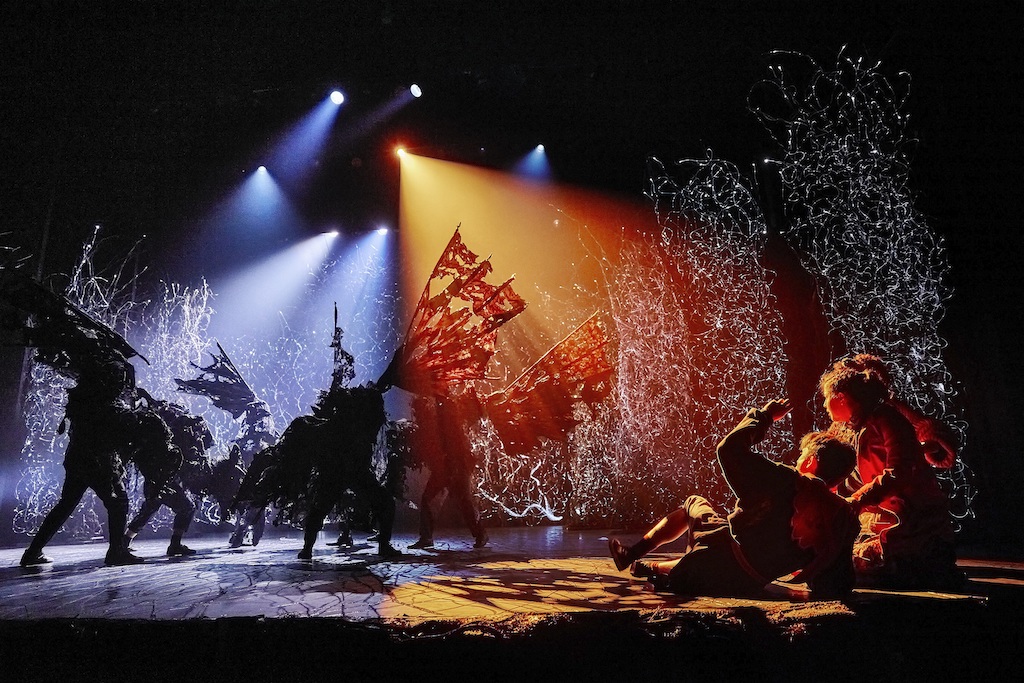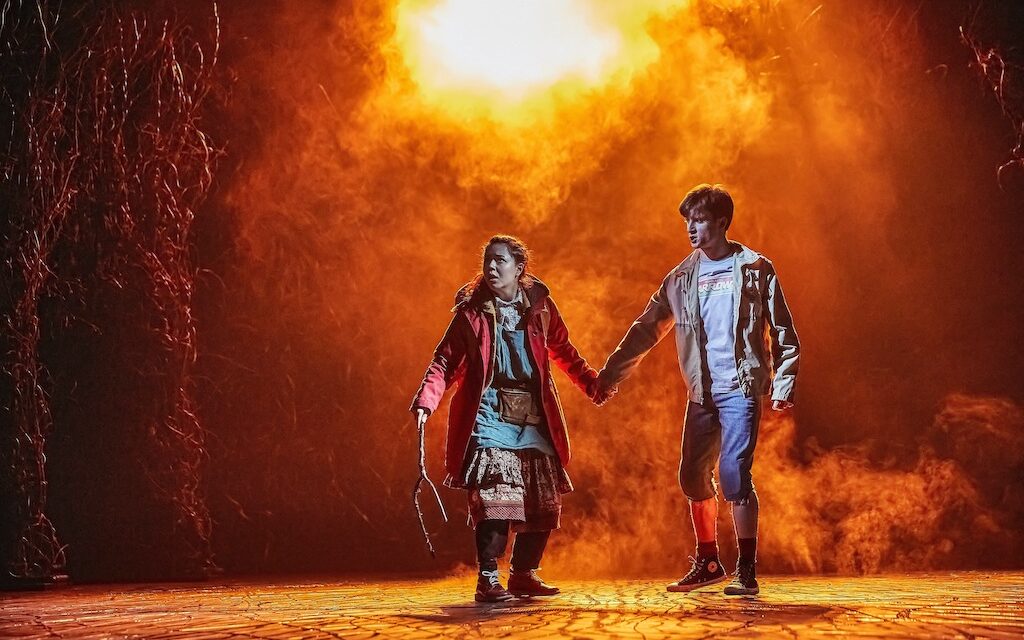
7 – 18 March
Where does imagination stop and reality begin? Adapted from Neil Gaiman’s magic-realist novel, The Ocean At The End Of The Lane explores that question, and in doing so depicts supernatural events that may or may not have happened, and strange characters that might or might not have existed. Directed by Katy Rudd, The Ocean At The End Of The Lane is visually and aurally a triumph, a veritable feast for the senses. In scenes that shift from beauty to terror in the blink of an eye, this is the tale of a young boy’s childhood. Or, perhaps more precisely, this is the story that in manhood he has constructed in order to come to terms with the loneliness and mistreatment he suffered as a child. It is the infinite malleability of memory that has enabled him to escape the harsh realities of his past.
In the opening scene an unnamed man returns to his childhood home for a funeral, and recollects his friendship with a young girl, Lettie Hempstock. She comes from a family of female farmers who appear to have an intimate acquaintance with the supernatural. Millie Hikasa brilliantly conveys both Lettie’s sense of adventure and her disarming otherworldliness. Her grandmother, Old Mrs Hempstock (Finty Williams), is an intriguing witch-like creature with a nice line in dark humour. Her mother, Ginnie (Kemi-Bo Jacobs) seems fractionally more down-to-earth, but the three Hempstocks in general are uninhibited, mystical and, possibly, entirely figments of the boy’s imagination. In contrast, the boy’s father (Trevor Fox) is a prosaic figure, a widower with a distant, emotionally repressed manner, but with violent tendencies. In one terrifying scene he punishes his son by nearly drowning him. Keir Ogilvy (alternating the role with Daniel Cornish) is entirely convincing as the young boy who, in trying to escape reality, is inexorably drawn into a dangerous, unpredictable new world of self-discovery. Monsters are encountered, and a dreadful sacrifice is made.
Inhabiting both the bleak world of the boy’s home life and the far stranger world to be found in the dark forest is Ursula, the new lodger who is having an affair with his father. She has another supernatural persona, Skarthach, who is full of unpleasant surprises. Charlie Brooks endows Ursula both with silver-tongued allure and a capacity for vicious hostility.
Throughout the play the idea that there is a clear distinction between reality and fantasy is questioned. At one point the boy cries, ‘I’m staying in the real world.’ The teasing reply is, ‘Where’s that then?’
To give more than a hint of what perils are encountered by the boy and his firm friend Lettie would be to give the game away. Suffice it to say that The Ocean At The End Of The Lane employs puppetry, illusion, spectacular lighting and an often thunderous sound design, all to brilliant effect. Fly Davis’s breathtaking set includes doors that magically multiply, and there are seamless transitions from one spectacular scene to another that feature astonishingly skillful stagecraft. Most memorable perhaps is an underwater sequence of great beauty. The Ocean At The End Of The Lane is theatre at its very best.
★★★★★ Mike Whitton, 8th March, 2023
Photo credit: Brinkhoff-Moegenburg


